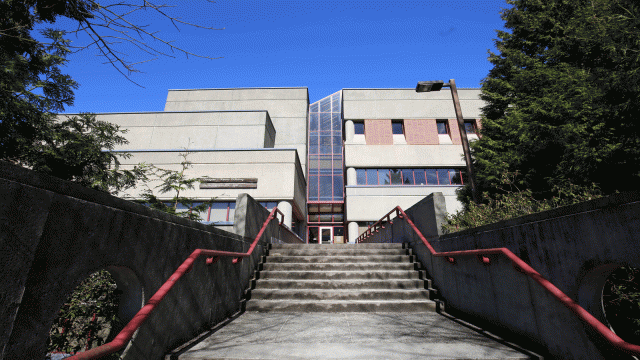Study human and animal behaviour using scientific methods and from a variety of perspectives including behavioural neuroscience, cognition, clinical, health, developmental, social and personality psychology, and quantitative methods.
This program is also offered at UBC's Okanagan Campus
Find out moreWhy this program?
- UBC's Department of Psychology ranks 10th in the world and first in Canada by Times Higher Education World University Rankings.
- UBC Psychology is a world leader in innovative research with over 45 laboratories across eight sub-disciplines.
- Our academic programs offer enriched teaching and learning experiences to position you for success in graduate studies, as scientists, or in a career in the public and private sectors.
Program information
Send details- Campus: Vancouver
- Faculty: Faculty of Arts
- Degree: Bachelor of Arts
- Length 4 yrs
- Co-op Yes
- Honours Yes
Psychology is the scientific study of behaviour in humans and other species. Psychologists draw on a broad range of perspectives to explore topics such as the effects of social interactions on health, language and moral development in children, the effects of drugs on consciousness and the brain, and mental illness and wellness. Psychology has many practical applications, including identifying the most effective ways to learn and remember things, designing workplaces for employees that are healthy and productive, treating disorders like depression and anxiety. Our program outcomes offer an overview of what students in this program can expect to learn.
Experiential learning and research
All psychology majors conduct a research project in their second-year course PSYC 217, and many of our students go on to conduct research with world class faculty and graduate students by volunteering in research labs and taking Directed Studies courses.
Campus features
UBC has more than 45 research labs in these sub-disciplinary specializations: Behavioural Neuroscience, Clinical, Cognitive Science, Developmental, Health, Quantitative Methods, and Social/Personality.
Send detailsLife at UBC's Vancouver campus
The Psychology program at UBC's Vancouver campus offers a friendly and professional academic setting. Each year the department partners with the Psychology Students’ Association to host events ranging from faculty-student socials and meet-your-professor events, to workshops on resume writing and career building, to panels on expanding your UBC experience and pursuing graduate studies.
Find out moreYour future
Studying psychology not only gives you a broad range of skills spanning science and the arts, it prepares you for a number of exciting career options. Psychology graduates qualify for entry-level positions in fields as diverse as marketing, sales, government, journalism, advertising, healthcare, social work, and counselling.
Program graduates
- Founder and CEO, 720 Sweets & Etc.
- Master of Science candidate, The University of British Columbia
- Chief scientific officer, Distill Analytics
Program requirements
English-language requirements
English is the language of instruction at UBC. All prospective students must demonstrate English-language competency prior to admission. There are numerous ways to meet the English Language Admission Standard.
General admission requirements
IB Diploma Programme
- Completed IB Diploma, including at least three Higher Level courses.
IB Certificate Courses
- IB Certificate courses (Standard and Higher Level) may be used in an admissions average if you are graduating from a recognized high school curriculum that can be used as your basis of admission.
- IB Math Applications and Interpretations SL, or IB Math Studies, do not satisfy the math requirement for admission to UBC’s science-based programs, the Faculty of Management, the UBC Sauder School of Business, or the Vancouver School of Economics.
Degree-specific requirements: Arts
- No specific courses required beyond those needed for general admission
Related courses
The following subject categories are particularly relevant for this degree. Consider taking courses in these areas in your junior year and senior year.
- Language Arts
- Mathematics and Computation
- Second Languages
- Social Studies
- Visual and Performing Arts
